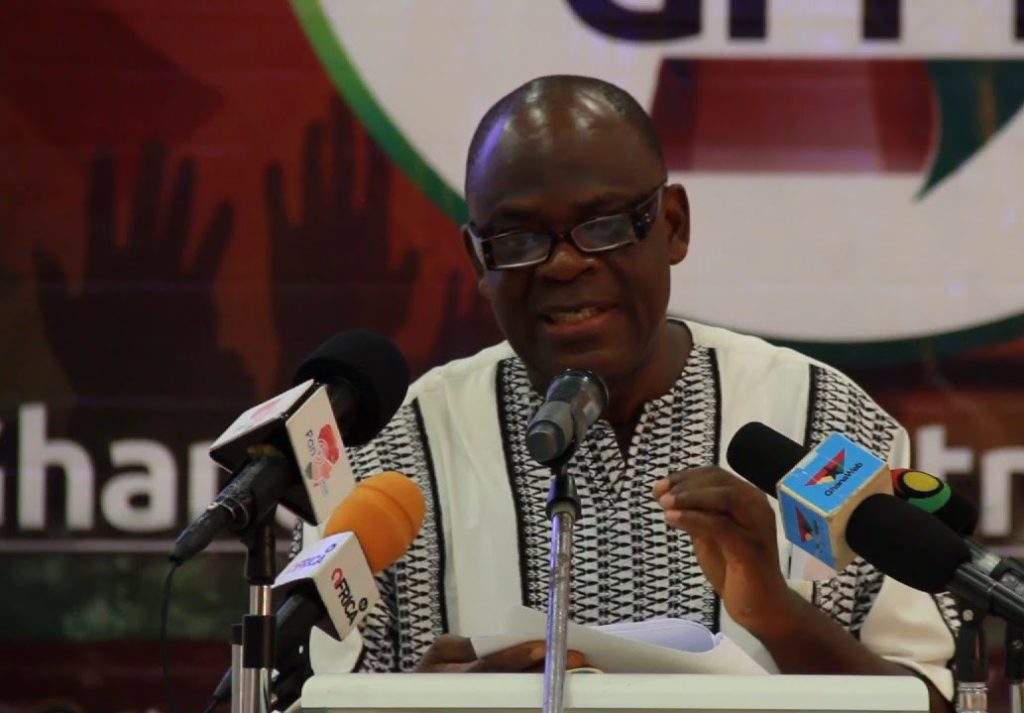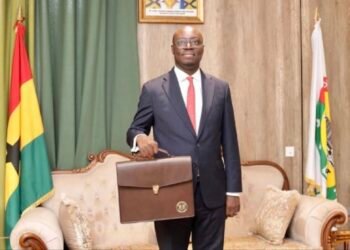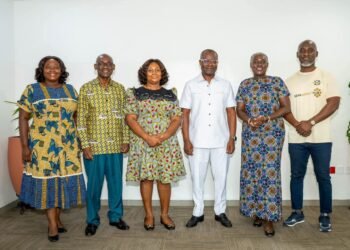There have been several instances of clashes between Ghanaian and Nigerian traders in the retail space over the past few months. Instances of such were at Abossey Okai, Circle and Kumasi. More recently, the GUTA chapter in Koforidua in the Eastern region also issued an ultimatum demanding the closure of all retail shops belonging to Nigerians by August 31, 2020 following the influx of their activities in the retailing space.
A senior Lecturer at the Legon Centre for International Affairs and Diplomacy (LECIAD), University of Ghana, Legon, Dr Ken Emmanuel Ahorsu, in an interview with The Vaultz news believes that the actions of Ghana Union of Traders’ Association (GUTA) are not in place and the government must as a matter of urgency engage GUTA and their Nigerian counterparts, Nigerian Union of Traders Association Ghana (NUTAG), on how best to resolve the issue.
“I’m not an expert in law but when there is a National law and there is a Supranational law, the Supranational law takes precedence over the national law. So, I think what is very important is that the government must take the bull by the horn by calling GUTA to order to have dialogue with them that the circumstances are different when it comes to dealing with West Africans and the domestic law. When this goes on Ghana will be the loser because no matter the way we look at it, Nigeria is bigger, they have a bigger weight than Ghana.”
He explained that, in relations between states, if the economy of a country is not doing very well, people begin to target other groups of people that they perceive are the cause of the malice of the economy or their inability to excel in their various trade. This, he suggests, has been the situation all over the world. He further noted that even in developed countries similar things happen when their economies are not doing very well; they try to look at foreigners as the cause and sometimes these things turn into xenophobia and all sort of things.
“Ghana and Nigeria have a long history. Ghana for the most parts depend on Nigeria for assistance during economic hardships and sometimes helping the police with vehicles and all sorts of things. The issue is that there must be clarity, whether Nigerians are like Chinese and other people. This is very important because Nigeria is part of ECOWAS and ECOWAS has all the protocols on free movement of people and goods.”
He further advised that, Ghanaian traders should adapt to the concept of best practices. The argument put forward by the GUTA suggests that NUTAG members are taking the preserve of its Ghanaian counterparts. But, according to Dr. Ahorsu, research has shown that one of the reasons why the Nigerian traders are doing better in the retail space is simply because they have better relationship with Ghanaian customers when trading with them. “And most of the time, the Ghanaian traders don’t have a good working relationship with their clients or customers in Ghana.”

Whereas GUTA stands on the laws that prevent foreigners from engaging in retail trade to lock the shops of foreigners, Dr. Ahorsu is of the view that such laws need to be reconciled with the international trade laws especially with ECOWAS protocols on free trade in the sub-region.
“What is important is that, we need a review of such laws. ECOWAS citizens must be exempted. There are a lot of Ghanaian retailers in Nigeria, Ivory Coast, Mali, Burkina Faso, and Togo; so, you cannot eat your cake and have it too. Because Ghanaians are treated equally in other West African countries. So, why then should we have a law that ban other West African countries from participating in retail trade?”
He however, expressed dismay about the long silence of government over this issue. According to him, the government is in a dilemma because, since it’s an election year, it will be very difficult to state whether foreigners should be allowed into the retail trade or not.
“I’m surprised that the government over the years have been very quiet on this issue. At least, it’s very important that West Africans are redefined as far as those who are foreigners are concerned.”
Similar happenings led to the deportation of about 1million Ghanaians from Nigeria in 1983 that further worsened the economic hardships in the country. According to him it will not be fair for Nigeria to threaten retaliatory measures against Ghana now since two wrongs do not make a right. The two countries still benefit from each other in several ways and as such this issue should be handled with care and with urgency.
“We are being ambivalent, where the protocols favor us, we are all for it. But, where we have to make sacrifices, then we say that we have a domestic law. This is why the government must be held responsible. If there is contradiction between your national law and the international laws, you must reconcile them”.
Considering the vital role played by international relations and trade in economic development, it will be proper for all countries to maintain a healthy relationship with one another.
“There is the need for care and diplomacy, a need to speak and a need to dialogue to have a solution to this problem. People who are taking the law into their own hands must be made aware that there are Ghanaians who are also in retail trade in other West African countries and by their singular acts in Ghana, they are jeopardizing the lives of people who are in other West African countries so they should put a stop to it.”





















